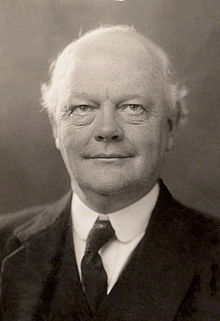The Viscount Hailsham | |
|---|---|
 | |
| Lord High Chancellor of Great Britain | |
| In office 28 March 1928 – 4 June 1929 | |
| Monarch | George V |
| Prime Minister | Stanley Baldwin |
| Preceded by | The Viscount Cave |
| Succeeded by | The Lord Sankey |
| In office 7 June 1935 – 9 March 1938 | |
| Monarchs | George V Edward VIII George VI |
| Prime Minister | Stanley Baldwin Neville Chamberlain |
| Preceded by | The Viscount Sankey |
| Succeeded by | The Lord Maugham |
| Lord High Steward | |
| In office 1935 | |
| Prime Minister | Stanley Baldwin |
| Preceded by | Vacancy |
| Succeeded by | Vacancy |
| Lord President of the Council | |
| In office 9 March 1938 – 31 October 1938 | |
| Prime Minister | Neville Chamberlain |
| Preceded by | The Viscount Halifax |
| Succeeded by | The Viscount Runciman of Doxford |
| Leader of the House of Lords | |
| In office 5 November 1931 – 7 June 1935 | |
| Prime Minister | Ramsay MacDonald |
| Preceded by | The Marquess of Reading |
| Succeeded by | The Marquess of Londonderry |
| Secretary of State for War | |
| In office 5 November 1931 – 7 June 1935 | |
| Prime Minister | Ramsay MacDonald |
| Preceded by | The Marquess of Crewe |
| Succeeded by | The Viscount Halifax |
| Attorney-General for England | |
| In office 6 November 1924 – 4 April 1928 | |
| Prime Minister | Stanley Baldwin |
| Preceded by | Sir Patrick Hastings |
| Succeeded by | Sir Thomas Inskip |
| In office 24 October 1922 – 22 January 1924 | |
| Prime Minister | Bonar Law Stanley Baldwin |
| Preceded by | Sir Ernest Pollock |
| Succeeded by | Sir Patrick Hastings |
| Member of Parliament for St Marylebone | |
| In office 15 November 1922 – 28 March 1928 | |
| Preceded by | Sir Samuel Scott |
| Succeeded by | Rennell Rodd |
| Personal details | |
| Born | Douglas McGarel Hogg 28 February 1872 London, England |
| Died | 16 August 1950 (aged 78) Hailsham, England |
| Political party | Conservative |
| Spouses |
|
| Children | 2, including Quintin |
Douglas McGarel Hogg, 1st Viscount Hailsham, PC (28 February 1872 – 16 August 1950) was a British lawyer and Conservative politician who twice served as Lord Chancellor, in addition to a number of other Cabinet positions. Mooted as a possible successor to Stanley Baldwin as party leader for a time in the very early 1930s, he was widely considered to be one of the leading Conservative politicians of his generation.